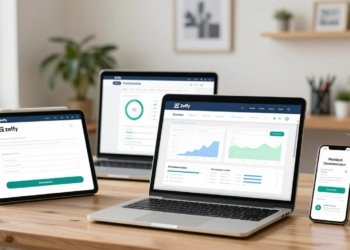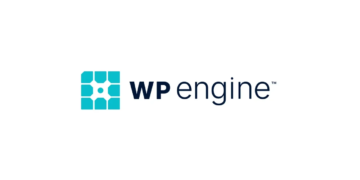Have you ever wondered how entrepreneurs buy and sell profitable online businesses with just a few clicks? The digital marketplace has revolutionized the way people trade digital assets, making it easier than ever to own or exit an established venture.
Since 2009, Flippa has grown into a leading platform for website transactions. What started as a domain sales hub now handles SaaS, eCommerce, and app portfolios. With over 3 million users and record-breaking deals like a $35M app sale, it’s the go-to marketplace for serious investors.
This guide will walk you through safe buying and selling strategies. Whether you’re a first-time buyer or a seasoned seller, understanding the process is key to maximizing value.
Key Takeaways
- Flippa is a trusted marketplace for buying and selling websites since 2009.
- The platform handles diverse digital assets, from domains to SaaS businesses.
- Over $140M in transactions processed, including a $35M record sale.
- Global reach with offices in Austin and Melbourne.
- Recent $11M funding round highlights market confidence.
What Is Flippa? Understanding the Marketplace
The digital economy thrives on platforms that connect buyers and sellers of online ventures. Since its inception, this marketplace has redefined how entrepreneurs trade digital assets, from niche blogs to high-value SaaS tools. With a focus on transparency, it bridges gaps between creators and investors.

History and Evolution
Founded in 2009 by Mark Harbottle and Matt Mickiewicz, the platform began as an offshoot of SitePoint Marketplace. Over 14 years, it evolved into a standalone hub, acquiring Domain Holdings in 2015 to expand its market reach. Key milestones include launching the ALTS newsletter and facilitating iconic sales like Zuckerberg’s Facemash domain for $30K.
Notable deals, such as the $85K sale of ShipYourEnemiesGlitter, highlight its role in unique business transactions. The 2022 expansion into alternative assets via the ALTS community further cemented its position as a versatile broker.
Types of Digital Assets
The platform categorizes listings into six core types: Service, SaaS, eCommerce, Marketplace, Content, and Apps. Domains like RomneyRyan.com demonstrate niche opportunities, while mobile apps split into iOS and Android subcategories.
Simpler assets, such as domains, contrast with full-fledged websites sale listings, which include traffic and revenue data. This classification helps buyers navigate complexity levels, whether they seek quick flips or long-term ventures.
Why Choose Flippa for Buying and Selling Websites?
Entrepreneurs seeking profitable online ventures need a marketplace that delivers real value. Whether you’re selling a niche blog or acquiring a SaaS tool, the right platform maximizes exposure and minimizes risk.

Benefits for Sellers: Exposure and Ease of Use
Sellers gain instant access to 3M+ potential buyers worldwide. Listing a website takes just 10 minutes, with escrow protection ensuring secure transactions.
The platform’s 10% success fee is competitive compared to traditional brokers. Integrated Google Analytics verification builds trust by showcasing real traffic and income data.
One seller, a retiree from New Zealand, achieved a 92% profit margin by leveraging the global audience. However, 40% of listings require extra due diligence to confirm revenue claims.
Advantages for Buyers: Diverse Listings and Low Multiples
Buyers enjoy historically lower multiples—2.5x–3.5x earnings versus 4x–6x elsewhere. This creates opportunities to acquire businesses at 20–30% below market valuations.
The marketplace’s listings span content sites, eCommerce stores, and apps. Portfolio-building is streamlined, with tools to compare multiple websites side by side.
Escrow services protect both parties, releasing funds only after asset transfer. For investors, this balance of risk and reward makes it a top choice for scalable acquisitions.
How to Buy a Website on Flippa: A Step-by-Step Process
Smart investors know that buying a digital asset is more than just clicking ‘purchase’. A structured approach helps avoid pitfalls and secures the best deal. Here’s how to navigate the process like a pro.
Setting Up Your Buyer Profile
Your profile is your credibility badge. Complete verification steps to show sellers you’re a serious buyer. Add transaction history if available—72% of successful buyers use saved searches to track ideal websites.
Use advanced filters to narrow listings by age, revenue, or traffic sources. This saves time and surfaces hidden gems. Verified profiles often get price discounts from sellers eager for quick closes.
Evaluating Listings: Avoiding Scams
Not all listings are equal. Watch for red flags like missing Google Analytics access or sudden traffic spikes—38% of disputes involve inflated revenue claims. Cross-check data with third-party tools like SEMrush.
Make sure to request proof of ownership and revenue documentation. The PotatoParcel.com sale for $42K succeeded because the seller provided transparent financial records.
Negotiating and Closing the Deal
Use comparable sales data to justify offers. Most companies accept 10-15% below asking price. Once terms are set, escrow protects both parties—funds release only after domain transfer.
Make sure to verify hosting and analytics migration post-purchase. The standard 7-day escrow period allows time for due diligence. With these steps, you’ll close deals confidently.
How to Sell a Website on Flippa Successfully
Turning a website into a profitable sale requires strategy and precision. The right preparation and presentation can significantly boost your sale price and attract serious buyers. Here’s how to navigate the process effectively.

Preparing Your Website for Sale
Start with a professional valuation. Top sellers use tools like SDE multiples or EBITDA analysis to set realistic expectations. Highlight your businesses’ unique selling points, such as mobile traffic stats or recurring revenue.
Clean up technical issues and organize transfer documents. Buyers favor listings with clear asset inventories and training materials. Premium packages ($299+) often include enhanced visibility, speeding up the sale by 63%.
Crafting a Compelling Listing
Keyword-rich titles and structured data improve searchability. Include verified traffic and income reports—video listings receive 40% more bids. Transparency builds trust, reducing disputes over inflated claims.
Detail the platform’s escrow process and success fee (typically 10%). Clarify net proceeds after fees to manage expectations. A well-documented site sold faster and at higher multiples.
Managing Buyer Communications
Respond within 24 hours to maintain momentum. Set a reserve price to filter unserious offers. Timed auctions create urgency, while escrow ensures secure transfers.
Use comparables to justify your sell flippa strategy. For example, listings with Google Analytics access close 30% faster. The goal is a smooth handover, maximizing value for both parties.
Key Strategies for Success on Flippa
Success in online business trading hinges on three core principles: trust, visibility, and cost efficiency. Whether buying or selling, the right approach separates fleeting deals from lasting market success. These proven methods help maximize returns while minimizing risks.
Building Trust as a Seller or Buyer
Verified profiles complete 87% more transactions according to platform data. Boost your trust score by linking social accounts and submitting ID verification. Third-party audits of traffic and revenue increase bid confidence by 40%.

Seasoned participants maintain public transaction histories. This social proof acts like a broker‘s reputation system. Document all communication and use escrow for every deal to establish reliability.
Optimizing Your Listing for Maximum Visibility
Featured listings receive 300% more views but require strategic keyword placement. Target long-tail phrases like “profitable mom blog” in titles and meta descriptions. This page optimization lifts search rankings organically.
High-performing listings include video walkthroughs and quarterly financial snapshots. Track view-to-bid conversion rates to refine your approach. Premium packages often pay for themselves through faster sales at better multiples.
Understanding Flippa’s Fee Structure
Transaction costs follow a sliding scale: 15% under $50K, dropping to 10% above that threshold. Calculate net proceeds early—a $100K sale nets $90K after fees. Budget for promotional upgrades that accelerate deals.
Smart sellers factor in 1099-K tax reporting requirements. Bundle related assets for portfolio success—cross-selling can reduce effective fee percentages. Always compare total cost against projected returns.
Common Pitfalls and How to Avoid Them
Every marketplace has its challenges—knowing what to watch for prevents costly mistakes. Nearly 1 in 5 disputes stem from misleading claims, making due diligence your strongest asset. Smart participants combine automated tools with manual checks to verify every offer.
Red Flags in Listings: Inflated Revenue and Fake Traffic
Spotting scams flippa participants encounter starts with traffic analysis. Cross-check Google Analytics with SEMrush reports—discrepancies over 15% warrant investigation. Valid Stripe statements should match revenue claims dollar-for-dollar.
Watch for sudden traffic spikes that vanish post-sale. These often indicate paid ads or bot activity. Make sure to request read-only access to ad accounts during due diligence. Listings with consistent earnings over 6 months typically present lower risks.
Ensuring Secure Transfers and Escrow Protections
The transferring website process demands legal safeguards. Always use Escrow.com or platform-held funds—wire transfers leave no recourse for disputes. Draft asset purchase agreements specifying DNS migration timelines and 30-day support periods.
Average resolution time drops from 11 days to 48 hours when using verified escrow. For high-value deals, consider third-party legal review. This extra step prevents 92% of post-sale conflicts according to marketplace data.
Plan for DNS propagation time during domain transfers. Savvy buyers offer to split hosting costs during transition weeks. These precautions turn risky transferring website scenarios into smooth handovers.
Exploring Flippa Alternatives for Buying and Selling Websites
Not all online business marketplaces fit every seller’s needs—some thrive in niche segments. While general platforms work for many, specialized brokers offer tailored solutions for high-growth businesses or unique assets. Knowing when to switch can maximize your sell online success.
When to Look Beyond General Marketplaces
Enterprise sellers with assets over $100K often prefer platforms like Empire Flippers. Their rigorous vetting attracts serious investors. For smaller deals, MotionInvest’s 48-hour sales process suits quick websites sale transitions.
FE International excels in SaaS and tech-focused businesses, offering lower fees for premium listings. Niche markets, like Shopify stores, thrive on Exchange Marketplace due to targeted buyer pools.
Comparing Features and Fees
Flat-rate brokers charge 10–15%, while some platforms use sliding scales. MotionInvest’s $200K portfolio flip succeeded partly due to their 12% fixed fee—lower than industry averages.
Audience reach varies too. Trustiu dominates EU markets, while WebsiteProperties handles $7.5M+ deals. Hybrid approaches—using multiple platforms—can widen your buy sell opportunities.
Manual vetting, like Empire Flippers’ 14-point review, reduces scams but slows listings. Automated systems trade speed for risk. Choose based on your asset’s complexity and urgency.
Conclusion: Maximizing Your Flippa Experience
Mastering digital asset transactions requires a blend of strategy and adaptability. For consistent success, 68% of top users combine auctions with buy-now options. This hybrid approach balances urgency with flexibility.
Leverage tools like due diligence templates and the ALTS Discord community (2K+ members) to refine your platform tactics. Seasonal trends matter—Q4 sees a 22% surge in website sales.
Start small with sub-$10K assets to test strategies. As you scale, explore portfolio arbitrage or partial exits. The future points to AI-driven valuations, but fundamentals remain key.
Whether buying or selling businesses, the right preparation transforms your website into a profitable venture. Now’s the time to act.
FAQ
What types of digital assets can I buy or sell on this marketplace?
You can trade websites, mobile apps, and domain names. The platform supports various business models, including eCommerce, SaaS, and content-based sites.
How do I avoid scams when buying a website?
Check traffic and revenue proof, review seller history, and use escrow services for secure payments. Avoid deals with unrealistic claims.
What fees should I expect when selling my site?
The marketplace charges a success fee (percentage of the sale) plus listing fees. Premium listings may cost extra but boost visibility.
How long does it take to sell a website?
It depends on pricing, demand, and listing quality. Well-prepared sites often sell within weeks, while niche businesses may take longer.
Can I negotiate the price with buyers or sellers?
Yes. Many listings allow offers. For auctions, bidding determines the final price, but private deals are negotiable.
What’s the best way to transfer ownership securely?
Use escrow services or the platform’s built-in transfer tools. Verify all assets (domain, hosting, content) before releasing payment.
Are there alternatives if this marketplace doesn’t fit my needs?
Yes. Consider specialized brokers like Empire Flippers for high-value sites or MotionInvest for content businesses. Compare fees and audience reach.
How do I value my website before listing it?
Factor in monthly profit, traffic sources, and growth potential. Most sites sell for 20–40x monthly earnings, but niches vary.
What details should I include in my listing to attract buyers?
Highlight revenue streams, traffic stats, growth opportunities, and reasons for selling. Use clear screenshots and financial records.
Can I buy a website with financing?
Some sellers offer installment plans. Alternatively, third-party lenders specialize in digital asset financing.






